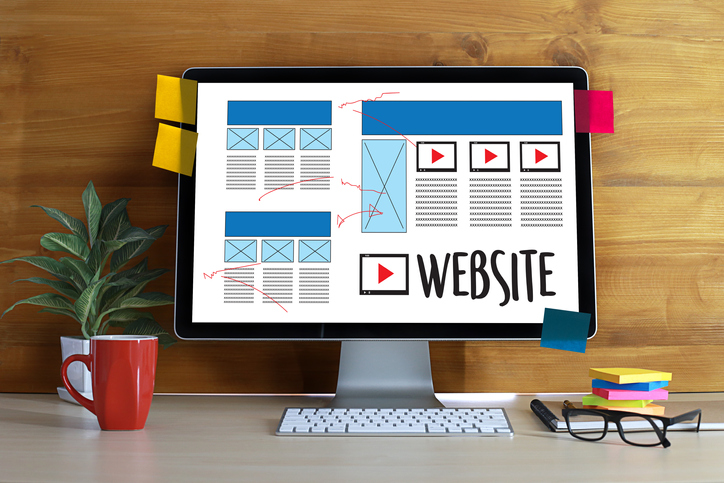If you’re in the market for a website design, you probably don’t know exactly how you should choose one or what questions to ask to determine a great website designer from a poor one. Here’s a bunch of key questions you should be asking your website designer before you hire them.
Who’s doing the work?
This may seem like a pretty straight forward question to assume the answer to, but frequently web site designers outsource the actual work overseas. This may impact your project for a number of reasons. Firstly, the person you’re dealing with is not the person actually developing the site. This leads to miscommunication and delay. In addition, dealing with time differences, language barriers and cultural differences will lead to sub optimal website design experience for you.
Is this your full time job?
Surprisingly, many website designers have a full time job and work as part time freelancers building websites. If your website project is not their primary source of income, you will find the commitment and professionalism is probably lacking. The minute your project gets too difficult in terms of the relationship or the implementation of the project, they often just stop responding too you.
Will my website be optimized for SEO?
Many website designers don’t understand SEO or are able to implement a proper SEO strategy for your website. While SEO work varies greatly from simple on page keyword targeting to more robust SEO strategies. You should be asking what the plan is for SEO and how it will be incorporated into your new website design.
Will my new website be mobile responsive?
Up to 40% of all searches now come from a mobile device. You absolutely need your website to work on all screen sizes. A good design practise is to make your site mobile responsive so it will work appropriately on all screen sizes. Don’t forget to ask your website designer about this feature.
Will you be submitting my sitemap to Google for indexing?
Unless your website is submitted to Google for indexing, it may take a long time to appear on search engines… maybe never! Creating and submitting a proper sitemap to Google is a key step in getting your website found on Google.
What happens after the website is launched? Who’s going to support it?
A modern website is not static. It depends on a wide variety of software from the server to the database to the web browser that displays it. All this software is constantly changing and updating. You need someone to manage this change for your website over time and keep up to date with software updates and security patches. Is your website designer going to be around to help you with this? Who is going to respond if your website goes down? Make sure you understand website support packages offered.
What can I realistically change myself on the website once it’s built?
There are many ways to build a website. If you don’t ask, the designer will probably build it in a way that only a website designer can change and update. This is the easiest way to build a site. However, if you need to be able to change images and content, you should be spelling this stuff out up front. Your designer will have to ensure the website is built in such a way that it makes it easy for you to update the content you need to update.
What platform is my website going to be built on?
You might think this isn’t an important question, as long as it works, right? However, if your website is build on and obscure platform, there will be few developers around to work on it. Making future updates difficult and expensive. About 40% of all websites in the World are built on WordPress right now. So, for example if WordPress is the platform it will be built on, you will have no problem finding developers and support if you have a problem.
Who’s hosting my site once it’s launched?
This is really a key question. The answer should always be you! Many website designers buy domain names on their own account and host client websites on their own hosting account. This makes it pretty difficult for the client to gain access or even change website designers in the future if they want to. You should always maintain control of your own domain name and hosting. Have your designer open a hosting account in your name and make sure you have the usernames and passwords.
How will I get traffic once my website is launched?
Surprisingly, just building a website alone will not grow your business! If you listen to all the commercials on TV, all you need to do is launch a website and the business will start flowing in. This is not the case! Getting traffic to your website and converting it into leads and future clients is a really complex marketing task. It requires having a marketing plan before you build the site and incorporating the marketing plan into the site design. For example, if you plan to get traffic from pay per click advertising you better have a proper landing page designed with a call to action and conversion form where you can send ad traffic to.
What if my website gets hacked or goes down in the future, who has a backup and who is going to respond?
Unfortunately in today’s World hacking websites is rampant. The purpose of most hacks is to send your traffic to their sites. You may get a surprise one day and your site re-directs to another website! If you don’t have a back process in place cleaning the infected website can be an arduous task. You and your website designer should have a plan in place for this. Ask your website designer how this will be addressed.
When can your website designer start?
This may seem like an innocuous question, but a website designer that can start tomorrow probably doesn’t have a lot of work on the books…maybe for a reason. Or, they are not being truthful about time commitments. On the other hand, if your website designer is booked out for three months and you need it right away, you should address this issue.
Do you have a basic project plan for the website design project?
A good website designer will have an established timeline for the project with key milestones all mapped out. They will have a good idea how long the process will take and what’s required to be completed at each stage. If your website designer doesn’t have a good project plan incorporated in your proposal, they probably are inexperienced and your project will encounter delays and conflicts with other projects they have on the books.
Who’s writing the content? What’s required of me?
Most website designers require you to write or provide the basic content. You need to understand what content you are required to provide and when. It’s not realistic to expect your website designer to write detailed information about your product and/or services. No one understands your products and services better than you. While most designers will polish and edit the content for SEO, full copywriting services are generally extra (and can cost as much as the whole website!). If you’re not going to be providing content, make sure you address this issue with your designer.
Where are the photos and artwork going to come from?
Don’t assume photos and artwork are included! If you’re expecting a photographer to come to your place of business to take pictures, unless you specify this, it’s probably not included. Stock photos are generally used for websites, but where are they getting the photos, and do they have the rights to use them on your website? This is a key question as you will be responsible for copyright violations on your site. FYI you cannot just cut and paste other peoples photos to your website if you’re not the copyright holder of that image. There are serous consequences for copyright violations.
What steps will you take to secure my site from would be hackers?
There are numerous steps an experienced website designer can take to secure your website from hackers. Some are more involved than others. Security measures can range from installing an SSL to changing the file permissions on the server and limiting login attempts. Security for your website is like security for your home. It can be as elaborate as you need it to be. You should definitely discuss the extent of security measures required and planned to be implemented.
How are you going to preserve the SEO from my current site?
If you already have a site and you’re doing a re-design it is important to preserve the SEO you have a the Google rankings you already have. Your website designer should have a plan of how to preserve the indexing you already have. Otherwise, it’s like starting from zero all over again.
How fast is my new website going to be?
This is a really complex topic. There are many factors that go into how fast a website serves up a page. These factors can be hosting, the design of the website, how it’s optimized to serve up CSS and JavaScript, etc. However, if page speed is an overriding factor in design, your designer will have to know up front. In general, there is a trade off between design and speed. The more images, animations, sliders, videos, post grids, etc that enhance the design also make the page slow. This is a key question and discussion you should have with your designer up front so a balance can be struck between design elements and overall speed.
Are you in the market for a new website designer?
If you’re considering a new website or a re-design of an existing one, an want to get the conversation started, a great way is to fill our our online request for quote form so we’ll have a good idea what you’re looking for and can reach out to you about your website design project. Get website design pricing here.

